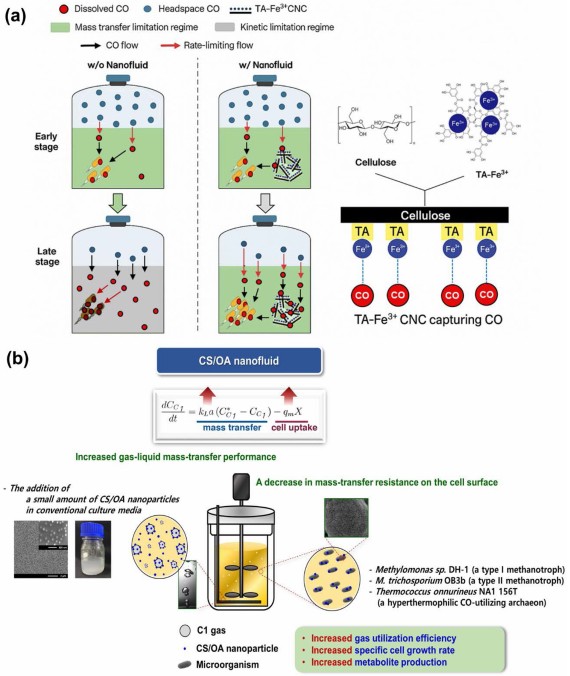
Microbial bioconversion of C1-gases, such as methane and carbon monoxide, is a promising approach for sustainable carbon utilization but faces challenges due to poor gas solubility and mass-transfer limitations. To address these issues, recent studies have explored enhancing mass transfer efficiency through modifications in bioreactor configuration and design, gas diffusion-enhancing additives, and biocompatible nanofluids. This review provides an overview of various bioreactor configurations and the role of surfactants and electrolytes in improving gas solubility and enhancing the mass transfer coefficient (kLa). Additionally, nanofluids with stably suspended nanoparticles can increase gas-liquid interfacial area, promote Brownian motion and convective diffusion, and enhance gas solubility. Biocompatible nanofluids composed of functional bio-nanomaterials may further mitigate mass transfer limitations through direct interactions with microorganisms, improving C1-gas bioconversion efficiency. Future developments will integrate these strategies with advanced bioreactor configurations, enabling scalable and eco-friendly C1-gas microbial bioconversion.


















